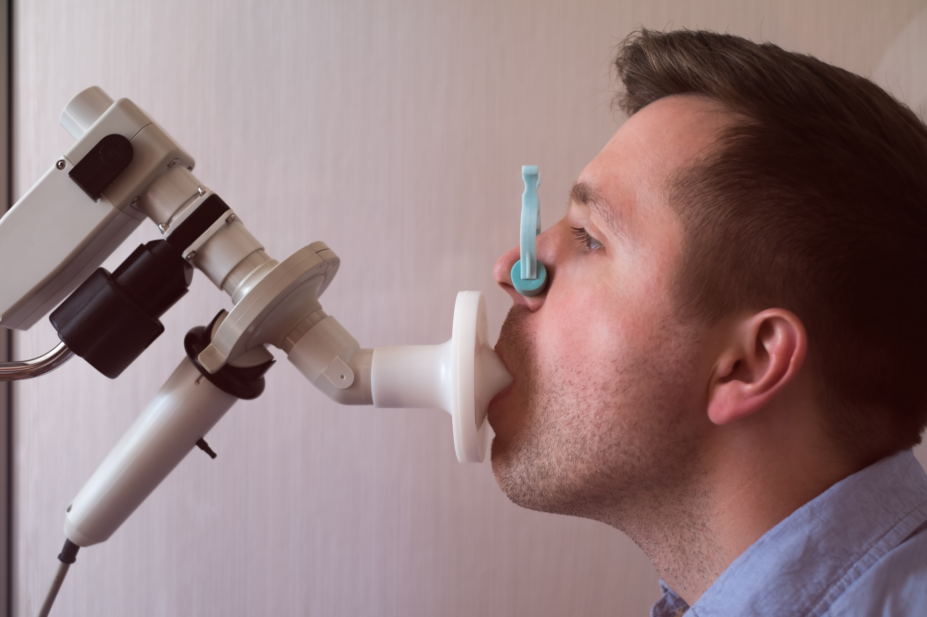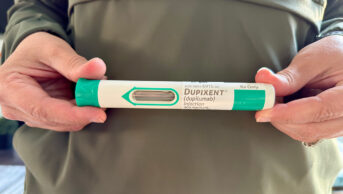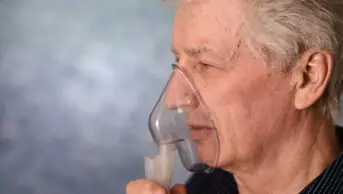
Shutterstock.com
Triple therapy reduces the number of moderate-to-severe exacerbations in people with chronic obstructive pulmonary disease (COPD), regardless of whether their airway obstruction is bronchodilator-reversible, a study presented at the CHEST annual meeting (6–10 October 2018; San Antonio, Texas) has shown[1]
.
The 52-week trial involved 10,355 people with COPD with a history of moderate-to-severe exacerbations in the previous 12 months. They were randomly assigned to triple therapy with inhaled corticosteroid fluticasone furoate (FF)/long-acting muscarinic agonist (LAMA) umeclidinium (UMEC)/long-acting beta-agonist (LABA) vilanterol (VI) or dual therapy with FF/VI or UMEC/VI. Patients were tested at baseline for airway obstruction reversibility with salbutamol and defined as either reversible (18%) or non-reversible (82%).
The researchers found that the rate of moderate-to-severe exacerbations was reduced by 40% in reversible patients and by 21% in non-reversible patients with triple therapy, compared with UMEC/VI dual therapy. Severe exacerbations were reduced by 44% and 31%, respectively.
Moderate-to-severe exacerbations were also significantly reduced compared with FF/VI in both reversible and non-reversible patients. Although, FF/UMEC/VI did not reduce the rate of severe exacerbations over FF/VI in reversible patients.
International guidelines recommend dual therapy (LABA/LAMA) for most patients with COPD, with the addition of inhaled corticosteroids only for those with frequent exacerbations. It was previously uncertain whether baseline reversibility, which indicates whether patients are bronchodilator-responsive, affects treatment response to triple therapy.
“Regardless of baseline reversibility, [triple therapy] showed statistically significant and clinically relevant improvements on a range of important outcomes,” the researchers concluded.
References
[1] Wise R, Van der Valk R, Hilton E et al. Treatment effects of FF/UMEC/VI vs FF/VI and UMEC/VI in reversible and nonreversible COPD patients: analyses of the impact study. Presented at: CHEST Annual Meeting; 6–10 October 2018; San Antonio, Texas. Abstract available at: https://journal.chestnet.org/article/S0012-3692(18)31858-0/abstract (accessed November 2018)


